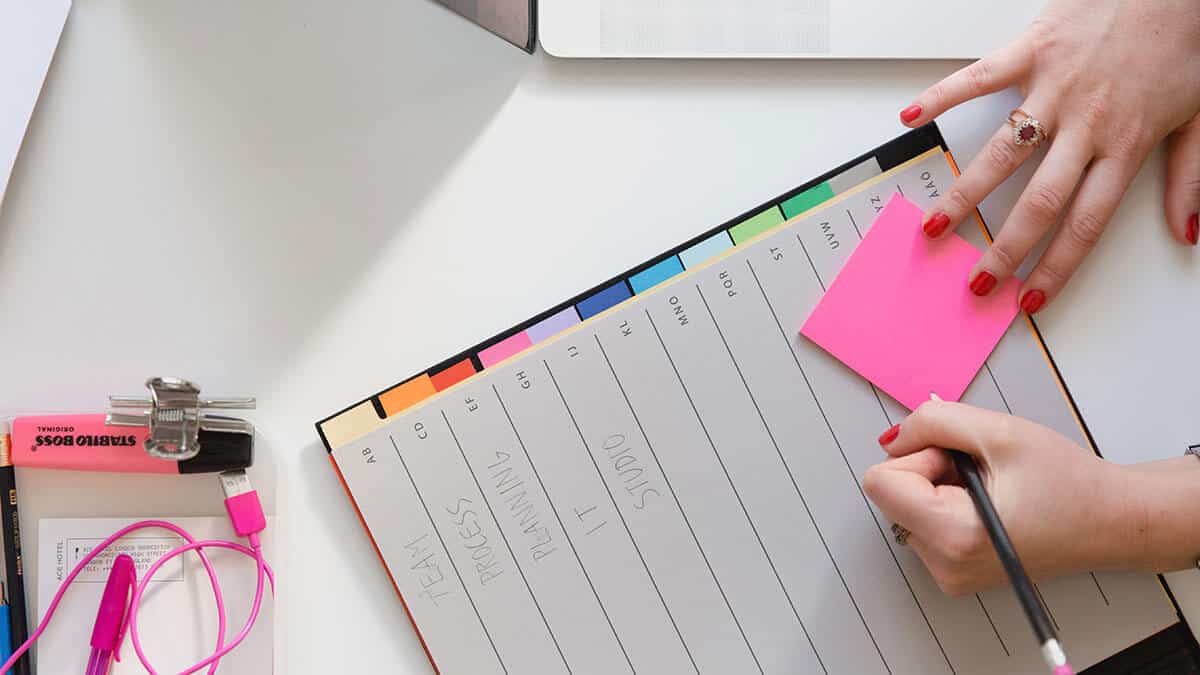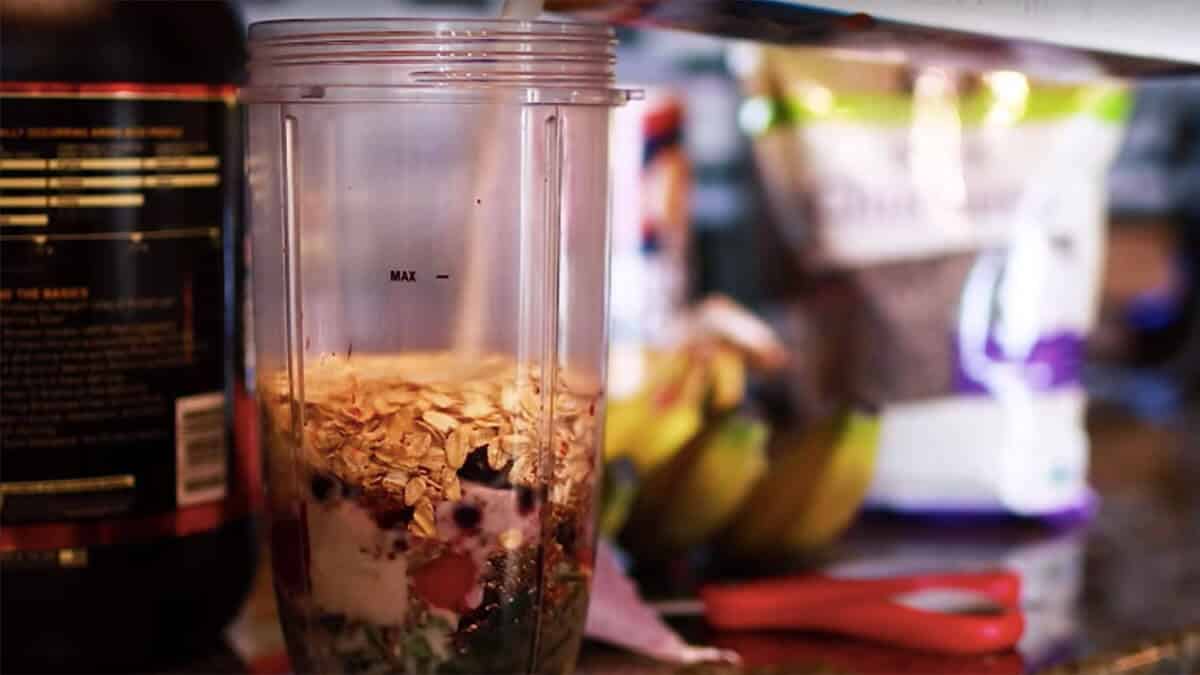How to Build Self Discipline - My #1 Exercise
If I just had more self-discipline, everything would be easier.
I’d exercise every day, never eat junk food, and wake up at 6 am each morning. I’d never get sucked into YouTube rabbit holes; I’d read a book instead.
At least, that’s what I tell myself.
We think of self-discipline as the key to living a better life, but is this true? And if it is, how can we become more disciplined? That’s what this article examines: what self-discipline is, how it works, and how you can build it.
What Is Self-Discipline?
If you’re going to increase your self-discipline, you first need to understand what self-discipline is. It seems obvious, but I’ve found that many people don’t even have a self-discipline problem.
Sure, they may think they do. They’ll say things like, “If I had self-discipline, I’d go to the gym every day.” Cool, but is lack of self-discipline really the reason you don’t go to the gym?
To find out, let’s define self-discipline. Self-discipline means acting in accordance with your thoughts, not your feelings. It’s your ability to do something regardless of how you feel.
Now, let’s contrast that with motivation. Motivation is your desire to do something in the first place.
To illustrate the difference, let’s look at a common fitness goal: running a marathon. It sounds impressive, and you figure that doing it will help you lose weight or get in shape or get more dates or something like that.
You find a training plan online, and you start following it. But after just a week, you give up.
Why did you fail? If you failed because you couldn’t force yourself to get out of bed early to run every day for an hour, then the problem is self-discipline.
But if you look a bit deeper, you might realize that you never wanted to run a marathon in the first place. You liked to idea of it, or the idea of having done it, but not the reality of doing it. In this case, the problem was never self-discipline; it was a lack of motivation.
So before you decide to increase your self-discipline, you should be sure that your issue isn’t a lack of motivation instead. Remember: motivation is your desire to accomplish a goal. Self-discipline is your ability to follow through on that goal even when you don’t feel like it.
Got it? Cool. Then assuming that the issue is self-discipline, let’s move on how you can get more of it. Before we do that, though, we need to clear up another misconception: self-discipline vs. habits.
Why Self-Discipline Is Overrated (Sometimes)
In the previous section, I argued that you may have a motivation problem, not a self-discipline problem. But it’s equally possible that the problem isn’t discipline, but rather habits.
Self-discipline is a worthwhile skill to build. But if you rely on it for everything, you’re not going to get the life you want. Honestly, self-discipline is overrated. Instead of developing the discipline to resist temptations, you can just change your habits.
A habit is something you do automatically, without thinking. I won’t get into the details of what habits are here (for that, I recommend reading The Power of Habit and Atomic Habits). All you need to know is that habits don’t take any thought or willpower; they just happen.
Therefore, in many cases, it’s better to focus on changing your habits.
For instance, if you want to go to the gym each day, turn it into a habit. At first, you will need self-discipline to overcome the resistance you feel to doing the habit.
But after a while, you won’t even need to think about it. Instead, you’ll go to the gym automatically, and not doing so will feel uncomfortable.
Still, you do need some amount of self-discipline to start building new habits and changing existing ones. So let’s take a look at 8 of the best tactics for developing the self-discipline you desire.
Focus on Changing Your Identity, Not Your Behavior
It’s easy to think that self-discipline is about regulating your behavior. And while that is the ultimate goal, it’s not the most helpful way to think about it. Instead, you should focus on changing your identity.
This comes from a concept called “identity-based habits,” which James Clear first wrote about here (and which he talks more about in Atomic Habits). The idea is that if you want to change what you do, you first need to change who you are. If you can change your identity, then it will be much easier to change your behavior.
For instance, let’s say you’re trying to eat less junk food to lose weight. You’re at a birthday party, and someone offers you a slice of cake. You could say, “No thanks, I’m trying to lose weight.” This is a perfectly valid response, but it puts the focus on self-denial.
You’re still the sort of person who eats cake; you’re just saying no to it this time around. This can make you feel miserable if you do it enough. And with time, you’re likely to say, “Screw it,” and just eat the cake.
But let’s look at how that same scenario plays out if you instead say, “No thanks, I don’t eat cake.” It’s a subtle difference, but the shift in focus is crucial. Now, instead of denying yourself, you’re simply affirming your new identity.
Why does this technique work? Because of something called “consistency bias.” It’s a term psychologists use to describe our tendency to act in a way that’s consistent with our identity, even if doing so makes no sense.
In many cases, this tendency is detrimental to our well-being. But if you’re trying to change your behavior, you can use it to your advantage. You can learn more about consistency bias in our article on the principles of influence.
Remind Yourself Why You’re Being Disciplined

Wanting to develop self-discipline is great, but why are you doing it in the first place? If it’s just for its own sake, you’re unlikely to stick through the pain and resistance that will arise when you’re building your discipline muscle.
Instead, I recommend having a concrete reason. What change will greater self-discipline bring about in your life?
Maybe you want to resist unhealthy foods, quit smoking, or drink less alcohol. Maybe you want to work out more often or eat better to have more energy. Or perhaps you want the discipline to learn a new skill.
Whatever the reason, you need to articulate it. And once you’ve done that, you need to remind yourself constantly of your “why.” I recommend writing your reason down on a sticky note and putting it somewhere you’ll see it every day. Here are a few places to consider:
- Next to your bed
- By your computer
- On your refrigerator
- Your bathroom mirror
- Your front door
This way, you’ll have a constant reminder of why you’re working to increase your self-discipline. It will be much easier to let your thoughts (rather than your emotions) drive your actions if you can constantly see your “why.”
Embrace Discomfort

Just as you build muscle when you consistently lift weights, your self-discipline muscles will get stronger the more you exercise them.
To exercise your self-discipline muscles, I recommend a regular practice that will push you out of your comfort zone and accustom you to avoiding the path of least resistance.
Here are a few daily self-discipline exercises you can do:
- Take cold showers
- Take the stairs instead of the elevator
- Sign up for an early workout class (preferably one that costs money, to add some extra incentive)
- Walk or bike for errands instead of driving
- Read a book instead of watching TV/YouTube/Netflix
Personally, I build self-discipline by doing some kind of exercise each morning. Usually, this means either a long bike ride or going bouldering. But it could also be as simple as some calisthenics or a long walk.
The exact activity doesn’t matter; the point is to consistently start each day with something that makes me a bit uncomfortable, but is ultimately rewarding.
Whatever you do, just do it regularly and make sure it’s at least a bit uncomfortable (but not painful or dangerous).
Focus on Fundamentals First

If you’re struggling to build self-discipline, check that you aren’t neglecting the fundamentals. Specifically, you need to take care of your biological fundamentals:
- Sleep
- Nutrition
- Exercise
These areas are easy to ignore in the pursuit of other goals, but everything else you do will be more difficult if you’re sleep-deprived, poorly nourished, and lacking regular exercise.
Why is this? The part of your brain that controls executive functioning (which regulates your desires and impulses) requires adequate energy and rest to function at its peak. Energy comes from regular exercise and good nutrition, while rest comes from getting enough sleep.
Remember: your brain isn’t some magical metaphysical object separate from your body. It’s as much a biological system as your bones, muscles, and digestive tract. If you don’t give it the energy and rest it needs, you’re setting yourself up for failure.
If you need help improving your sleep, nutrition, or exercise, check out these resources:
- How to Get to Bed on Time and Stop Losing Sleep
- Eating Cheaply, Healthily, and Quickly
- How to Create an Exercise Routine…And Stick to It
Note: I’m not a doctor, nutritionist, personal trainer, or any other kind of licensed professional. Always consult a professional if you have health questions or concerns.
Try Meditation

What if I told you that the key to improving your self-discipline was sitting still for a few minutes a day while focusing on your breath? It sounds crazy, but there’s some solid research showing that regular meditation can improve self-discipline.
In a 2013 study, Stanford researchers found that undergoing meditation training increased mindfulness, boosted happiness, and improved emotional regulation. This points to meditation as a promising technique for boosting your self-discipline, since regulating your emotions is key to acting in line with your thoughts (as opposed to your feelings).
There are lots of ways you can get started with meditation. You can try the app Headspace, which offers daily guided meditations for things like relieving stress and boosting focus. You can also check out one of the many guided meditation videos on YouTube, or even listen to a guided meditation podcast.
Perhaps the simplest method, however, is just to sit with your eyes closed for a few minutes and focus on your breath. As your attention wanders (which it will), work to bring your focus back to your breath.
At first, the exercise will seem boring and pointless. But if you do it consistently, it’ll become much easier to resist urges and cravings.
For more on this mindfulness meditation practice, check out this beginner’s guide from Zen Habits.
Practice Building New Habits
Earlier in this article, I explained how habits are different from self-discipline (and in many cases, more important for changing your behavior). However, the process of building a new habit is a great exercise for building self-discipline. Because you haven’t yet built the habit, you have to rely on self-discipline to overcome the resistance to doing it.
The result of building new habits, then, is a win-win. You get to build a new habit that benefits your life directly, and you get the indirect benefit of increased self-discipline. This creates a virtuous cycle, with each new habit becoming easier to build as your self-discipline grows.
So which habit should you start with? It really doesn’t matter if your main goal is to build self-discipline. But there are certain good habits everyone should have; here are some to start with:
- Exercising regularly
- Preparing yourself a healthy meal each morning
- Drinking water throughout the day
- Getting 7 – 8 hours of sleep per night
- Flossing once a day
- Meditating for 3 minutes each morning
- Reading for 30 minutes each day
Don’t try to build all of these habits at once; that’s a recipe for failure. Start with one, work on it for several weeks, and only move on to a new habit once the current habit has become automatic.
Use Technology to Your Advantage
While self-discipline is mainly an internal thing, you can also use technology to make it easier to build self-discipline (or to remove the need for it entirely).
One of the easiest ways to do this is to install an app that blocks distracting websites, video games, and other tempting things on your computer or phone.
Our favorite app for this is Freedom, though you can even use your phone’s built-in “Screen Time” settings. This approach works well whether you need to focus on important work or even if your devices are preventing you from going to bed at a decent time.
To maintain self-discipline while you’re building a habit, you can use a habit tracking app. There are many out there, but our favorite is Habitica. It turns habit-building into an RPG. This makes the process more fun via gamification, and it also adds accountability (since members of your party can suffer if you don’t keep up with your habits).
Finally, you can use technology to push through cravings for something. For instance, let’s say you’re craving ice cream. Instead of telling yourself, “You’re not allowed to have ice cream,” you can reframe the situation by setting a timer on your phone for 30 minutes.
Then, you can tell yourself that you can have ice cream…once the timer is up. Generally, 30 minutes is enough time for you to get distracted and forget what you were craving in the first place. This may not work for everyone (particularly if you’re craving something highly addictive such as a cigarette), but it’s a technique I’ve found to be useful.
Embrace Imperfection
No matter how much you practice, you aren’t going to be disciplined all of the time. There will be moments when you can’t resist temptation, when you’ve had a crummy day and give in to your desire to indulge in a cookie or to skip a workout.
Rather than beating yourself up when your discipline lapses, you should forgive yourself and accept that it’s a normal part of life. The goal isn’t perfection; rather, you should aim for an overall positive trend. As long as you’re being self-disciplined on average, your overall level of self-discipline will increase.
And along with embracing imperfection, view your failures to be disciplined as learning opportunities. If you skipped a workout, why? Was it really because you didn’t feel like it, or was it due to something else such as lack of sleep or feeling hungry?
When you learn from your failures, you can adjust your future behavior accordingly and continue on the path to better habits and increased self-discipline.
Start the Journey of Building Self-Discipline
I hope this article has given you a better understanding of what self-discipline is, as well as how you can start building it.
Remember: self-discipline is like a muscle, and you can only build it with consistent practice. So take the techniques in this article and start increasing your self-discipline today!
Your future self will thank you.
Image Credits: sticky note,
